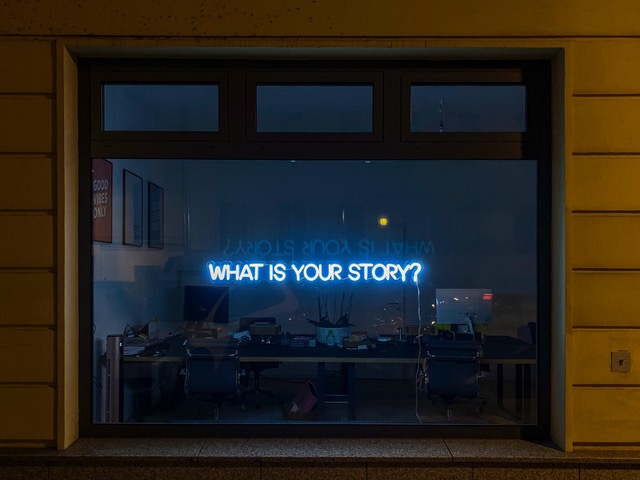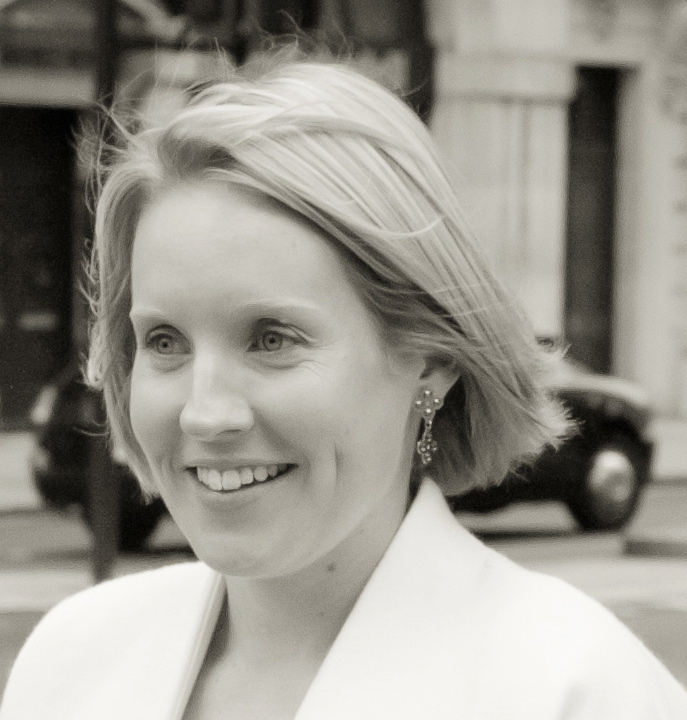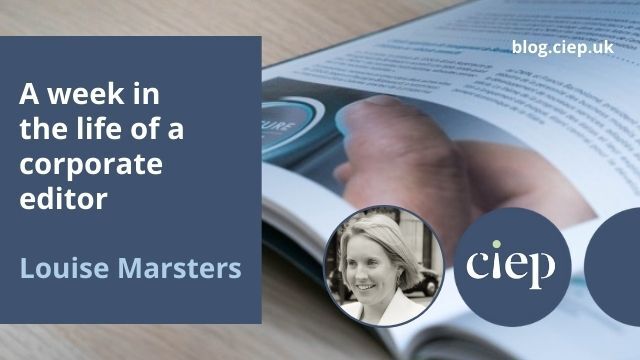Books aren’t the only collections of words that need editing. Corporate editor Louise Marsters shares her experience of communications, brand and business publishing, including the types of projects that need an editorial eye.
People can get very excited when you say you’re an editor. They think: best-selling books! Glossy magazines! Influential newspapers! Their enthusiasm drains when you clarify: ‘corporate stuff – you know, like annual reports and accounts’. ‘Oh, right,’ they say.
Little do they realise the reputation-enhancing effects to a company or brand of a well-told story or clearly communicated strategy – and how visual identity can pull the words together.
Dry but fun
Let me come clean: I wanted to be a dentist. But school physics and chemistry required an application that I couldn’t muster. English, meanwhile, seemed to require no application at all. It just clicked.
A business degree in communications followed, as did junior marketing communications jobs at a couple of corporate law firms. The only aspect of the work that I genuinely loved, though, was the writing and editing: client newsletters, legal manuals, tender responses. Dry stuff – but if I, a non-lawyer, could make sense of the content, the clients stood a chance too.
One of those firms was big enough to have its own publishing team. Writing and editing was all they did – all day. And they needed another member. The dry stuff was supplemented with whizzy brochures, website and intranet content, annual reviews, pro bono reports and, the holiest of grails for me, a new style guide. Getting to grips with design, photography and branding was all part of the deal – and the fun.
Just do the words
Thinking some more study might help my career prospects, I did a master’s degree in communications and media, before packing a (very large) bag and leaving Australia for the UK.
Another law firm job ensued (sigh) but it wasn’t long before the expat bush telegraph in London spread word of a job at a multinational oil and gas company – in corporate reporting.
‘In what?’ I spluttered. ‘The annual report and accounts? But I’m not an accountant.’
‘No, you just do the words,’ they said.
‘Oh, okay. When do we start?’
‘September, for publication in April. About 180 pages. And you have to put together the annual review and the financial and operating information at the same time. And edit the notice of meeting. Then, in the summer, you can research our competitors’ annual reporting suites and project manage a big report about energy economics. Oh, and sort out the style guide.’
Gulp.
Mission control
‘Doing’ corporate reporting meant project managing, working with designers, writers, printers, typesetters, photographers and online gurus, not to mention senior executives, board members, the company secretary’s office, content providers, lawyers and accountants – across the UK and the US.
Everyone ‘in house’ was an author or an approver. And their opinions (down to how the name of a report should appear on its perfect-bound spine) were as varied as the audiences (aka stakeholders) for whom the financial reporting publications were destined: investors, analysts, regulators, auditors, employees, customers, journalists.
I was mission control, scheduling, cajoling, influencing and, alongside those more senior, diplomatically helping the company to agree a single, unified story for the year. Only then could I copyedit the content, collate changes, query, get sign-off and submit for typesetting.
Proofreading – what felt like the purest of the editing work – came for a week or two (or three) before ‘going on press’ for each project. We’d camp out in a meeting room for the duration, bulky A3 proofs methodically arranged across the table and floor, bulldog clips and red pens in plentiful supply. Bliss.

Words before politics
After six ‘seasons’ of corporate reporting, it was time to move countries again: this time Switzerland. Not speaking much of any of its four official languages meant that working in a communications or editing capacity was as likely as my becoming a champion skier. The answer? Freelancing.
The network I’d built up and the lessons I’d learned from 12 years of corporate life meant I had a valuable launch pad.
I worked first for people I knew and who knew how I could help them. Then, as they moved around, they’d seek me out again, or new clients would find me. Being able to focus on words, not politics, was an unexpected upside.
Joining the CIEP was another upside. Training, upgrading, being mentored – plus the famous directory – all helped professionalise me as an individual editor, when I didn’t have a company name or job title to offer instant credibility.
Reputation, reputation
Fundamental to editing for a business or brand is understanding that the quality of what they publish is essential to their reputation.
Clients worth working with can see that editing is a crucial quality-control tool in producing professional communications – communications that enhance credibility and inspire trust. And they needn’t be big companies. Niche consultancies and independent charities, for example, have the same reputational needs.
Now back in the UK, this corporate editor’s work recently took in:
- proofreading brand and imagery guidelines for a global management consultancy
- proofreading a review of past financial reporting for a FTSE 100 pharmaceutical company
- proof-editing the ESG (environmental, sustainability and governance) section of an annual report for a FTSE 100 beverage company
- proofreading and cross-checking the print and interactive website versions of an annual report for a global engineering and architecture firm
- developing detailed writing and editorial style guidelines for a large independent charity aiming to professionalise its communications
- copyediting (and partly copywriting) the content of the same charity’s annual report to create a consistent tone of voice
and even included:
- proofreading – out loud, in a pair – the financial statements of an annual report for a FTSE 250 food ingredients company
- filling in every single page number and cross reference of a 152-page annual report for a British fashion brand
… but not all in one week!
Lately I’ve also:
- attended a webinar about how companies will soon be obliged to report against the Task Force on Climate-related Financial Disclosures
- written a blog piece for the CIEP
- agreed ongoing work with a niche investment pitch agency to edit business plans for start-up companies
- cast an editorial eye over friends’ websites, flyers or articles, for respite.
Words in context
I often feel there’s been a perverse logic to my career. Having started in broad marketing communications roles, I’ve managed to narrow work down to the ‘bits’ I really like: words, grammar, tone, style. But it’s that broadness that gives you the context in which those bits sit – and allows you to deliver a meaningful edit. And, yes, I genuinely love that.
About Louise Marsters
Louise Marsters edits communications and business content for corporate clients. Working in-house in corporate and financial communications taught Louise to shift her brand from ‘perfectionist’ to ‘pragmatic perfectionist’. Her colleagues even developed a strapline: Has it been Louise-d? Louise is a Professional Member of the CIEP, and a member of the plain language organisation Clarity.
 About the CIEP
About the CIEP
The Chartered Institute of Editing and Proofreading (CIEP) is a non-profit body promoting excellence in English language editing. We set and demonstrate editorial standards, and we are a community, training hub and support network for editorial professionals – the people who work to make text accurate, clear and fit for purpose.
Find out more about:
Photo credits: Louise’s headshot by Jeremy Mason; report by San Kaÿzn on Unsplash; lighting by Etienne Girardet on Unsplash.
Posted by Abi Saffrey, CIEP blog coordinator.
The views expressed here do not necessarily reflect those of the CIEP.

